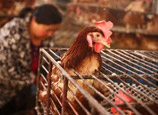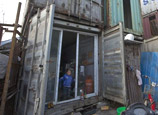
March money supply exceeds 100 trillion yuan
China's urban fixed-asset investment fell in March but growth from the private sector was robust, indicating policies on boosting private investment have taken effect.
Overall fixed-asset investment, excluding rural, rose 20.9 percent year-on-year to 5.8 trillion yuan ($937 billion) in the first quarter, from 21.2 percent in the previous two months, the National Bureau of Statistics said on Monday.
Investment from the private sector rose 24.1 percent year-on-year to 3.68 trillion yuan during the quarter, accounting for 63.3 percent of the overall investment.
Last year the government launched plans to open up key sectors dominated by State-owned enterprises such as energy, banking, railway and healthcare.
Wang Wenxiang, deputy director of the Institute of Investment at the National Development and Reform Commission, said the latest data showed the policies had worked, especially in boosting the private sector.
"The growth also indicates that entrepreneurs have regained confidence in the recovery," he said.
The latest figures show there was more money available for investment this year, providing greater support for both private and public investors.
Banks made 1.06 trillion yuan of new net loans in March, up from 620 billion yuan in February.
The broad measure of money supply (M2), which covers cash in circulation and all deposits, reached 103.61 trillion yuan by the end of the month, said the central bank, the first time monthly supply has exceeded 100 trillion yuan.
Zhang Zhiwei, China chief economist at Nomura Securities Co Ltd, said although monetary policy remained loose in March, there were incipient signs that the growth momentum had slowed and more policy tightening is needed to contain the debt buildup.

















 Photo: Bird flu fears hits poultry industry
Photo: Bird flu fears hits poultry industry


![]()
